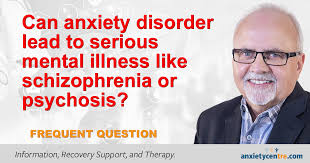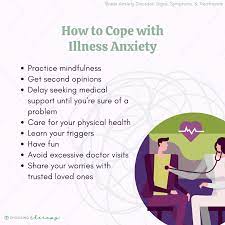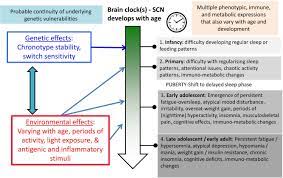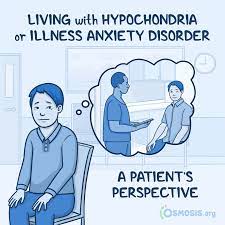The Impact of Anxiety as a Mental Illness
Anxiety is a common mental health condition that affects millions of people worldwide. It is characterized by feelings of worry, fear, and unease that can be debilitating and interfere with daily life. While it is normal to experience occasional anxiety in response to stressful situations, chronic anxiety that persists over time can develop into a mental illness.
Individuals with anxiety disorders may experience a range of symptoms, including:
- Excessive worrying
- Difficulty concentrating
- Irritability
- Sleep disturbances
- Panic attacks
- Physical symptoms such as heart palpitations, sweating, and trembling
Living with anxiety can have a significant impact on an individual’s quality of life. It can affect relationships, work performance, and overall well-being. Untreated anxiety can also lead to other mental health issues such as depression, substance abuse, and even physical health problems.
Fortunately, there are effective treatments available for managing anxiety disorders. These may include therapy (such as cognitive-behavioral therapy), medication, lifestyle changes (such as exercise and stress management techniques), and support groups.
If you or someone you know is struggling with anxiety, it is important to seek help from a mental health professional. With the right support and treatment, individuals with anxiety disorders can learn to manage their symptoms effectively and improve their quality of life.
Remember, you are not alone in your struggles with anxiety. Reach out for help and take the first step towards healing and recovery.
9 Positive Perspectives on Anxiety: Growth, Awareness, and Advocacy
- Increased awareness and understanding of mental health issues
- Opportunities for empathy and compassion towards others
- Recognition of the importance of self-care and mental well-being
- Encouragement to seek professional help and support
- Development of coping mechanisms and resilience
- Potential for personal growth and self-discovery through therapy
- Breaking stigma surrounding mental illness through open conversations
- Empowerment to advocate for mental health awareness and resources
- Appreciation for the value of mental health education and resources
5 Ways Anxiety Disrupts Life and Health
- Interference with daily activities and responsibilities
- Negative impact on relationships with family and friends
- Increased risk of developing other mental health disorders
- Physical symptoms such as headaches, muscle tension, and fatigue
- Chronic anxiety can lead to long-term health complications
Increased awareness and understanding of mental health issues
Increased awareness and understanding of mental health issues is a significant pro that can result from discussions surrounding anxiety as a mental illness. As anxiety becomes more openly discussed and recognized as a legitimate mental health condition, it helps reduce stigma and encourages individuals to seek help without fear of judgment. This heightened awareness can lead to improved support systems, increased access to resources, and ultimately foster a more compassionate and inclusive society that prioritizes mental well-being. By shedding light on anxiety as a mental illness, we pave the way for greater acceptance, empathy, and proactive efforts in addressing broader mental health concerns.
Opportunities for empathy and compassion towards others
An often overlooked pro of anxiety as a mental illness is the opportunities it presents for fostering empathy and compassion towards others. Individuals who have experienced anxiety firsthand are often more attuned to the struggles and challenges faced by those dealing with mental health issues. This heightened awareness can lead to a greater capacity for understanding, support, and kindness towards others who may be going through similar difficulties. By sharing their own experiences and offering empathy to those in need, individuals with anxiety can create a supportive community that promotes healing and well-being for all.
Recognition of the importance of self-care and mental well-being
The pro of anxiety as a mental illness is that it often leads to the recognition of the importance of self-care and mental well-being. Individuals struggling with anxiety are more likely to prioritize their own mental health needs, seeking out coping mechanisms, therapy, and self-care practices to manage their symptoms and improve their overall well-being. This heightened awareness can result in a positive shift towards a more balanced and mindful approach to mental health, fostering resilience and promoting personal growth.
Encouragement to seek professional help and support
Individuals experiencing anxiety as a mental illness are often encouraged to seek professional help and support, which is a significant advantage of this condition. Recognizing the need for assistance and taking steps to access appropriate resources can lead to effective management of anxiety symptoms and improved overall well-being. Professional help may include therapy, medication, and other interventions tailored to individual needs, providing valuable guidance and tools for coping with anxiety. Support from mental health professionals, friends, and family members can offer encouragement, validation, and a sense of community during challenging times, fostering a supportive environment conducive to healing and recovery.
Development of coping mechanisms and resilience
Individuals who experience anxiety as a mental illness often develop strong coping mechanisms and resilience in the face of adversity. Dealing with the challenges that anxiety presents can lead to the acquisition of valuable skills in managing stress, problem-solving, and emotional regulation. Through therapy, self-care practices, and support systems, individuals can learn to navigate their anxiety more effectively and build resilience that not only helps them cope with their condition but also enhances their overall ability to face life’s difficulties with strength and determination.
Potential for personal growth and self-discovery through therapy
Therapy for anxiety mental illness offers a unique opportunity for personal growth and self-discovery. Through therapy, individuals can explore the root causes of their anxiety, gain insight into their thought patterns and behaviors, and develop coping strategies to manage their symptoms effectively. This process of self-exploration can lead to a deeper understanding of oneself, increased self-awareness, and the ability to make positive changes in one’s life. By confronting and addressing their anxiety in therapy, individuals have the potential to not only alleviate their symptoms but also grow stronger, more resilient, and more empowered in facing life’s challenges.
Breaking stigma surrounding mental illness through open conversations
Breaking the stigma surrounding mental illness through open conversations is a significant pro of anxiety as a mental illness. By fostering dialogue and increasing awareness about anxiety and other mental health conditions, individuals are encouraged to speak up, seek help, and feel supported in their struggles. Open conversations help normalize the experiences of those with anxiety disorders, creating a more empathetic and understanding society that promotes acceptance and access to resources for mental health care. This proactive approach can lead to greater advocacy, education, and ultimately, improved well-being for individuals living with anxiety.
Empowerment to advocate for mental health awareness and resources
Individuals living with anxiety mental illness often find a unique sense of empowerment in advocating for mental health awareness and resources. Through their own experiences and challenges, they become passionate advocates for breaking the stigma surrounding mental health issues and ensuring that others have access to the support and resources they need. This pro of anxiety mental illness allows individuals to use their voice and personal journey to raise awareness, educate others, and promote a more compassionate and understanding society when it comes to mental health.
Appreciation for the value of mental health education and resources
An often overlooked benefit of anxiety as a mental illness is the increased appreciation it fosters for the importance of mental health education and resources. Individuals who have experienced anxiety firsthand understand the significance of seeking help, learning coping strategies, and accessing support systems. This heightened awareness can lead to a greater emphasis on mental health advocacy, destigmatization efforts, and the promotion of well-being initiatives within communities. By recognizing the value of mental health education and resources, individuals affected by anxiety can contribute to a more informed and supportive society that prioritizes mental wellness for all.
Interference with daily activities and responsibilities
Anxiety as a mental illness can significantly interfere with daily activities and responsibilities, making it challenging for individuals to function effectively in their personal and professional lives. The constant worry, fear, and unease associated with anxiety can lead to difficulty concentrating, decision-making, and completing tasks. Simple activities that others may take for granted, such as going to work, socializing with friends, or running errands, can become overwhelming and exhausting for those struggling with anxiety. This interference can result in decreased productivity, strained relationships, and a sense of isolation, further exacerbating the impact of the mental illness on one’s overall well-being.
Negative impact on relationships with family and friends
Anxiety as a mental illness can have a significant con in the form of a negative impact on relationships with family and friends. The constant worry, fear, and unease that characterize anxiety can lead individuals to withdraw from social interactions, isolate themselves, or become irritable and easily agitated. This behavior can strain relationships with loved ones, causing misunderstandings, conflicts, and feelings of distance. Family members and friends may find it challenging to understand the complexities of anxiety and may feel helpless in providing support. As a result, the bonds between individuals with anxiety disorders and their loved ones may weaken, leading to feelings of loneliness and isolation on both sides. It is crucial for individuals struggling with anxiety to communicate openly with their support system and seek professional help to navigate these challenges effectively.
Increased risk of developing other mental health disorders
Individuals struggling with anxiety mental illness face the con of an increased risk of developing other mental health disorders. Chronic anxiety can pave the way for conditions such as depression, substance abuse, and various mood disorders. The interplay between anxiety and these co-occurring disorders can exacerbate symptoms and make it challenging to manage overall mental well-being. Seeking timely intervention and comprehensive treatment is crucial to address not only the symptoms of anxiety but also to prevent the potential escalation into additional mental health issues.
Physical symptoms such as headaches, muscle tension, and fatigue
One significant con of anxiety as a mental illness is the manifestation of physical symptoms such as headaches, muscle tension, and fatigue. These physical manifestations can be distressing and debilitating, adding an extra layer of burden to individuals already struggling with the emotional and psychological effects of anxiety. Headaches can be persistent and severe, impacting daily functioning and quality of life. Muscle tension can lead to discomfort and pain, affecting mobility and overall well-being. Fatigue can be overwhelming, making it difficult to engage in activities or concentrate on tasks. These physical symptoms not only exacerbate the experience of anxiety but also highlight the interconnected nature of mental and physical health.
Chronic anxiety can lead to long-term health complications
Chronic anxiety, if left untreated, can have serious long-term health implications. Prolonged exposure to high levels of stress hormones associated with anxiety can weaken the immune system, increase the risk of cardiovascular diseases, and contribute to the development of chronic conditions such as hypertension and diabetes. Additionally, ongoing anxiety can impact sleep patterns, leading to insomnia and further exacerbating physical and mental health issues. It is crucial to address and manage anxiety effectively to prevent these potential long-term health complications.




